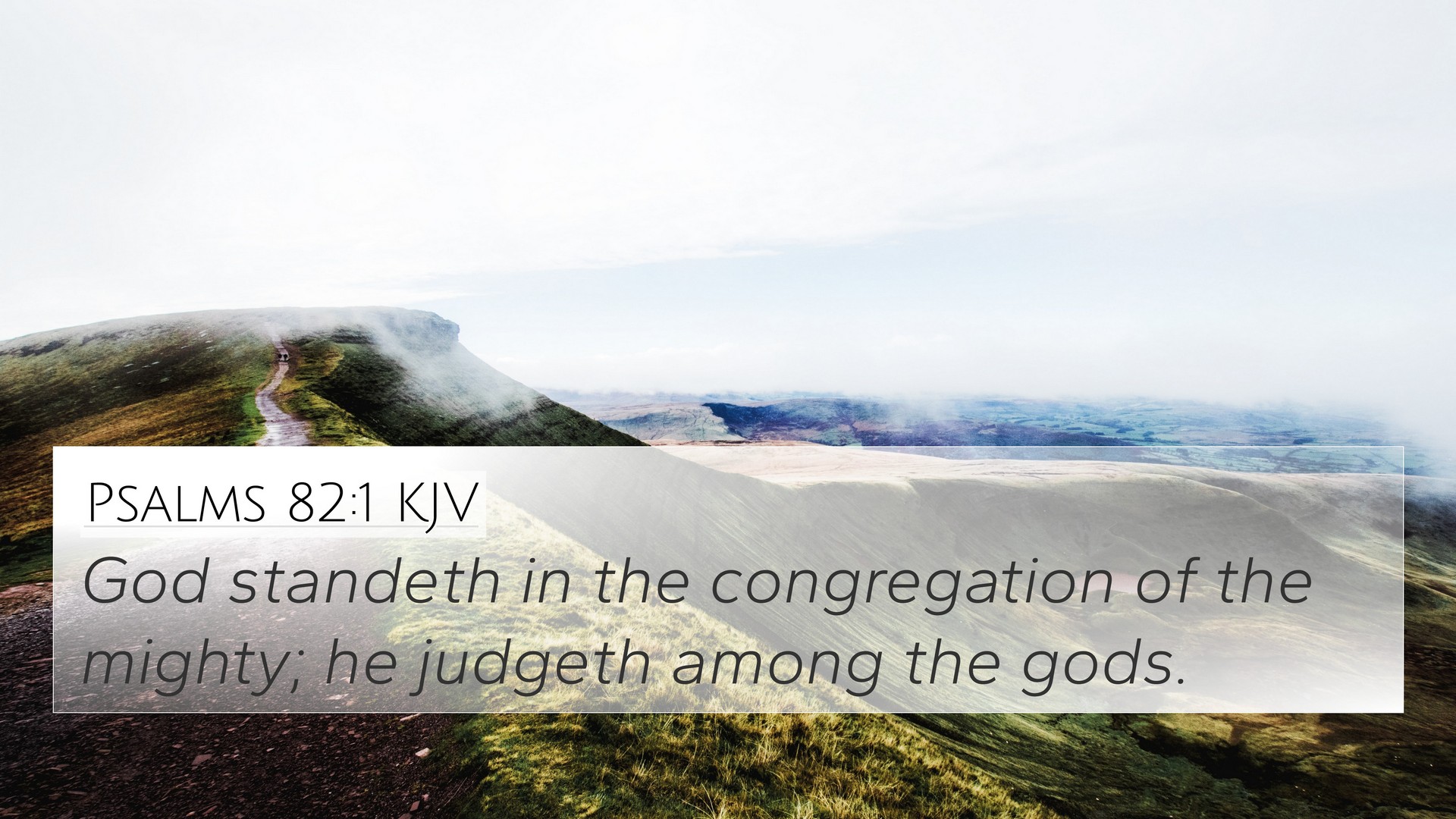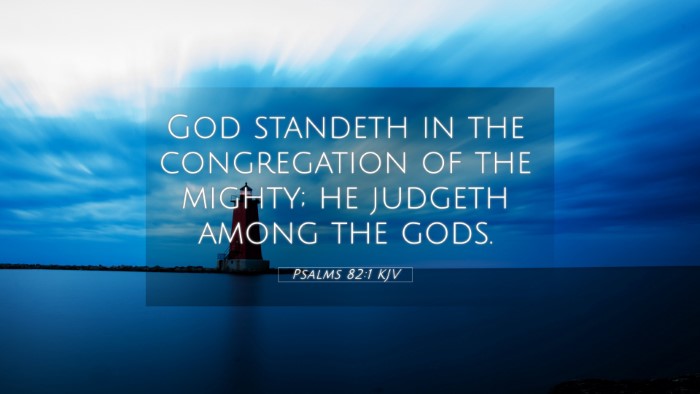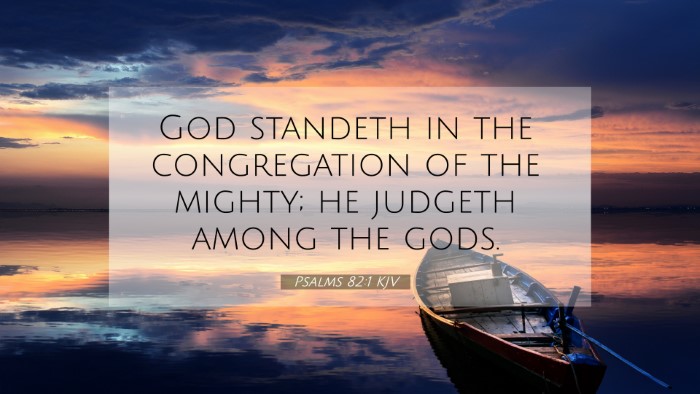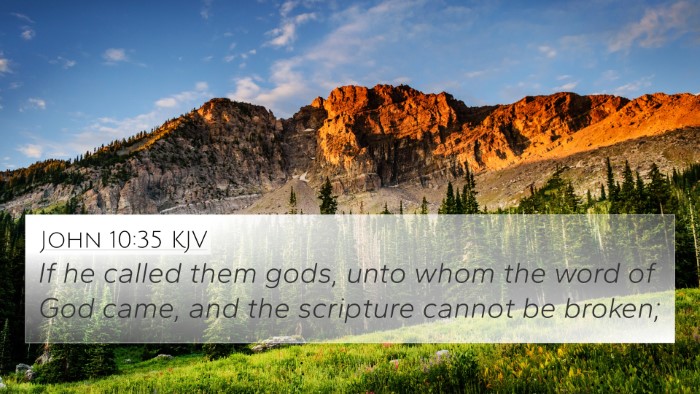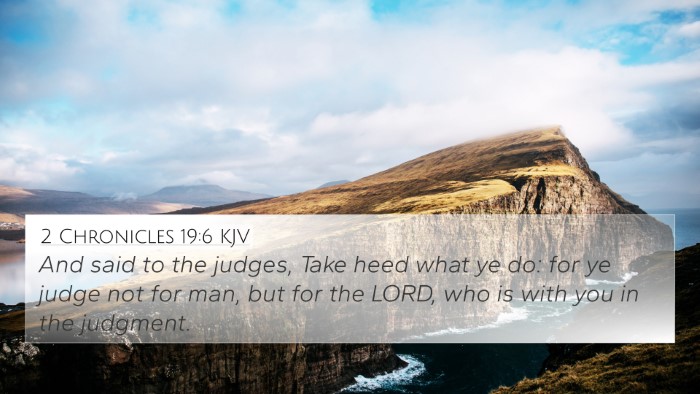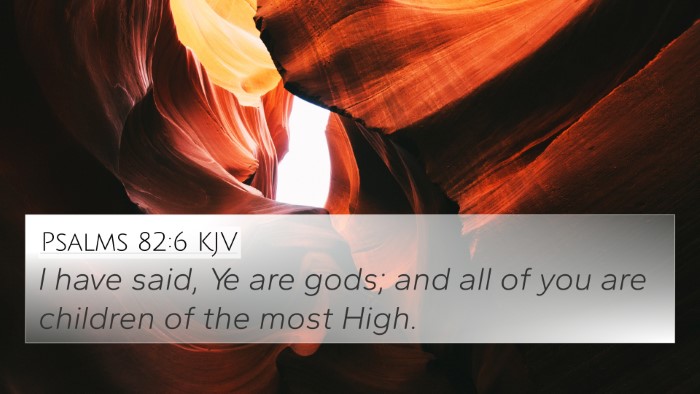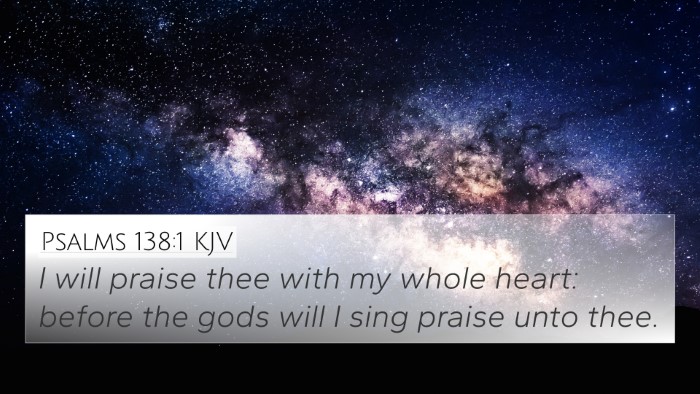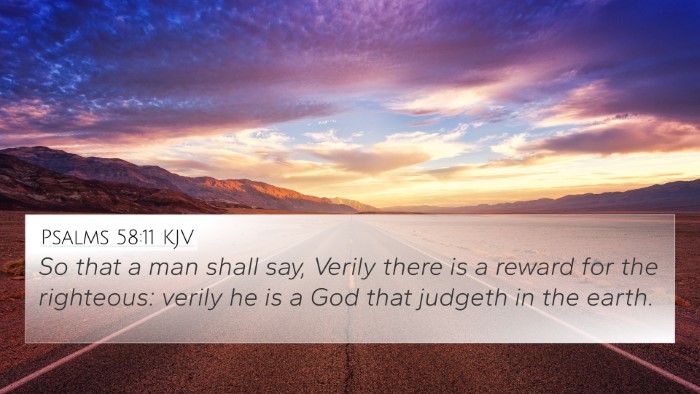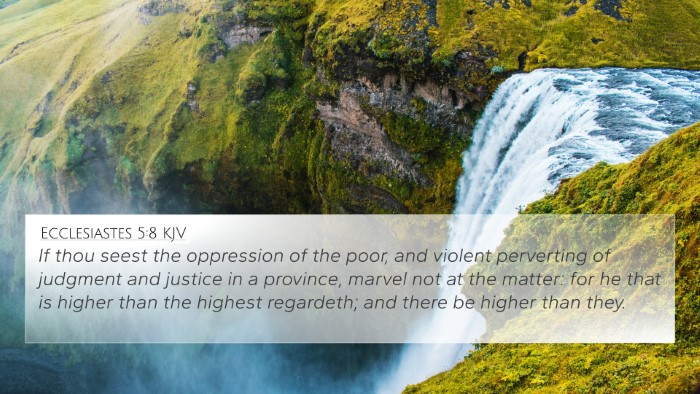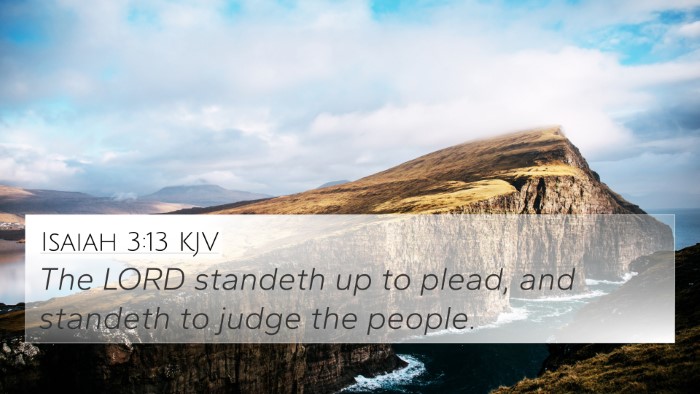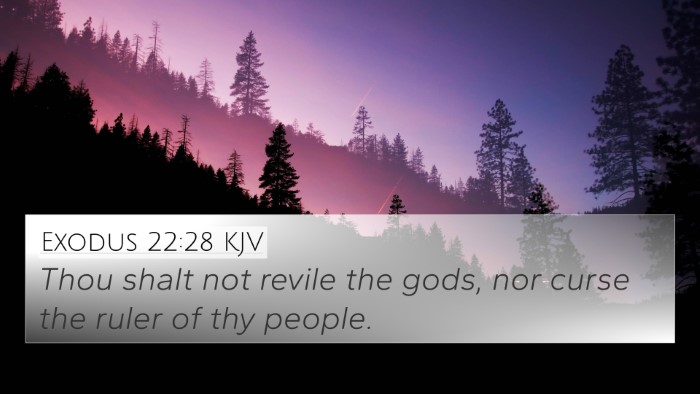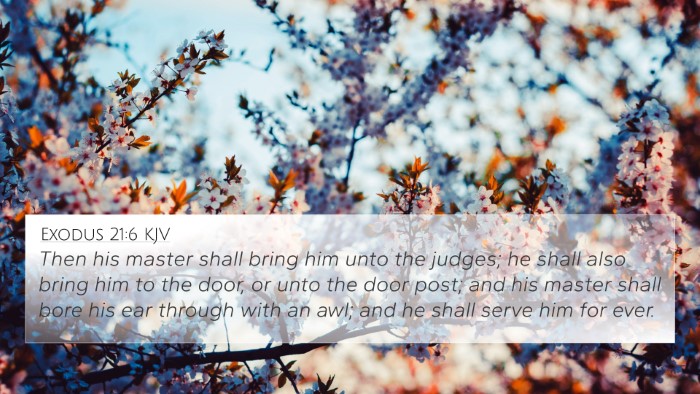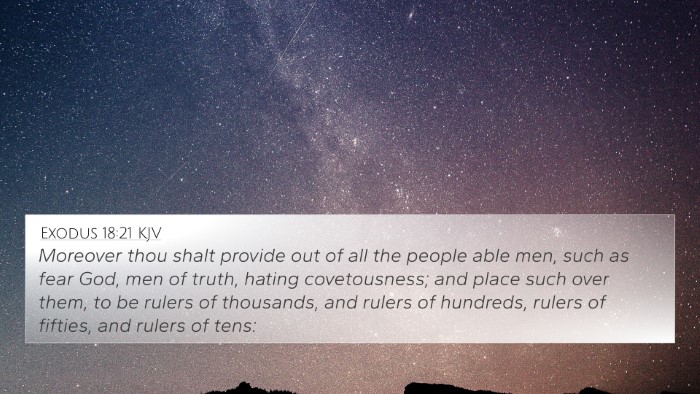Psalms 82:1 - Interpretation and Meaning
Bible Verse: "God standeth in the congregation of the mighty; he judgeth among the gods." (Psalms 82:1)
Summary of Insights
This verse presents a profound depiction of God as a judge presiding over a divine assembly. It underscores His authority and righteousness as He interacts with those who are described as "gods," likely referring to earthly rulers or divine beings. This complex verse invites various interpretations and draws connections with other scripture passages.
Commentary Insights
- Matthew Henry:
Henry notes that the term "gods" is used to refer to magistrates or judges, emphasizing their responsibility to uphold justice. He highlights the accountability of human judges before God, reflecting on the divine authority that governs earthly justice.
- Albert Barnes:
Barnes elucidates that this verse signifies God's sovereignty over all creation. He interprets the "congregation of the mighty" as a council of divine beings or authoritative figures, highlighting God's ultimate control over all judgments exercised on Earth.
- Adam Clarke:
Clarke emphasizes the metaphorical use of "gods" and suggests it pertains to the rulers of Israel. He explores the idea that God summons these leaders to account for their actions, illustrating a theme of divine scrutiny over human leadership.
Thematic Connections
This verse opens up numerous thematic connections across the Bible that support its interpretation:
- Divine Justice: Psalms 7:11 and Isaiah 30:18 speak to God's nature as a judge and the promise of justice for the oppressed.
- Human Accountability: Romans 14:10-12 reminds readers that all will stand before God's judgment seat, tying back to the idea of accountability in Psalm 82:1.
- The Authority of Rulers: Proverbs 16:12 and 1 Peter 2:13-14 discuss the role and expectations of rulers, indicating they are to govern justly under God's authority.
- Intercession and Advocacy: Job 16:21 and 1 John 2:1 reference the role of advocates in the heavenly courtroom, connecting to the divine judgment theme.
- God's Sovereignty: Jeremiah 10:10 emphasizes the supremacy of God as the true living God over the false deities and rulers.
- Conditional Judgment: Ezekiel 18:30 indicates God’s call for righteousness, linking human behavior to God's judgment.
- Call to Justice: Micah 6:8 summarizes God’s expectations, challenging leaders to act justly, a central theme in Psalm 82:1.
Application for Bible Study
Understanding Psalm 82:1 can enrich your study of the Bible by highlighting the following:
- Tools for Cross-Referencing: Utilize a Bible concordance or Bible cross-reference guide to trace similar themes and verses throughout scripture.
- How to Use Cross-References: Engage in cross-reference Bible study by comparing insights from Psalms with those found in the prophetic and apostolic texts.
- Inter-Biblical Dialogue: Explore how Old Testament verses like Psalm 82:1 resonate with New Testament teachings, enhancing your understanding of scriptural themes.
Further Exploration
To deepen your understanding of the connections and thematic interrelations:
- Examine Bible verses that relate to Psalms 82:1, such as Exodus 22:28 and John 10:34, for parallels in God's authority and human roles.
- Study comparative Bible verse analysis by examining how divine judgment is portrayed in both the Psalms and the Gospels.
- Engage in Bible chain references to see a broader contextual understanding and deepen your comprehension of God's nature and expectation of justice.
Conclusion
Psalms 82:1 serves as a reminder of God's sovereignty and the serious nature of justice that He imparts upon human leaders. By cross-referencing this verse with other biblical texts, we can gain deeper insights into God's nature and expectations for both earthly and spiritual authorities.
